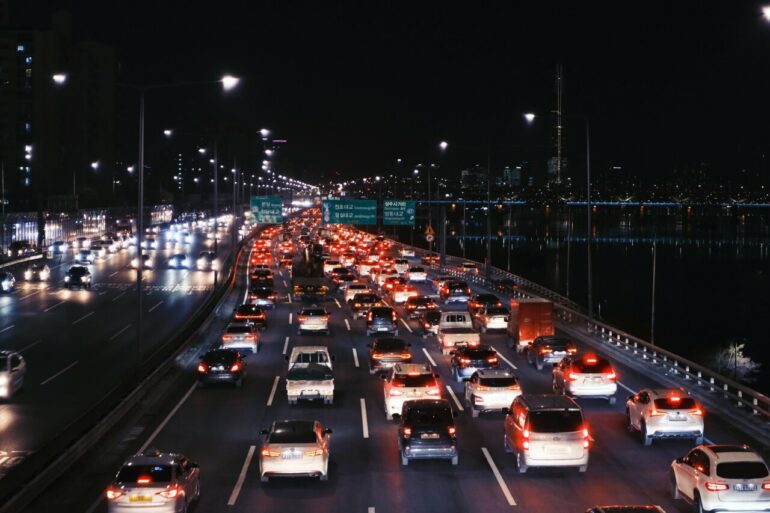Rush-hour traffic congestion is a major headache for commuters and a real problem for city planners. Worldwide, a huge amount of time is wasted stuck in traffic. A study found that commuters in the U.S. lose an average of 99 hours per year to traffic jams, while those in the U.K. lose an average of 115 hours.
Over the years, city planners have developed increasingly sophisticated computational models in an attempt to forecast and manage traffic demand.
Kenan Zhang, a tenure track assistant professor at EPFL and the head of the Lab for Human-Oriented Mobility Eco-System (HOMES), within EPFL’s School of Architecture, Civil and Environmental Engineering (ENAC), set out to tackle the problem of traffic congestion with colleagues from ETH Zurich.
The research team has developed a new system that is not only effective but also fair, because it doesn’t impose costs on commuters. Their findings have just been published in Transportation Science.
The traffic management system, which is called CARMA, is designed specifically for the congestion caused by commuters who drive from the suburbs to the city center during the morning rush hour.
In the traffic model, commuters would have two options: they could either take a slow lane with heavy traffic or use credits (called “karma”) to bid for a fast lane with fewer cars. The idea is that commuters would use their karma credits when they’re in a particular hurry. At the end of each day, the credits collected from fast-lane commuters would be redistributed to everyone participating in the CARMA system.
“In conventional rush-hour traffic models, the assumption is that everyone is in a hurry to get to the office at the same time,” says Zhang.
“But we relax this assumption and consider that commuters can be in less of a rush on some days and more on others. This better reflects the reality and ensures our system would work over the long term.” Commuters can choose to keep their credits for days when they’re running late, for example.
Ensuring fairness and protecting personal data
Another key feature of the CARMA system is that the karma credits have no commercial value, meaning the scheme doesn’t discriminate against people with lower incomes. Many of the traffic demand management systems used in cities today are based on tolls of an amount that’s higher during rush hour and lower at other times of the day.
“People who are well-off can afford to pay high tolls to avoid waiting in traffic, whereas lower-income commuters have to leave earlier or later to avoid the traffic,” says Zhang. “These kinds of systems aren’t fair.”
In addition, no personal data are collected in the CARMA system. Current traffic demand management systems rely on data collected from residents about commuting habits to generate a toll schedule to reduce rush-hour congestion. For example, residents are surveyed on how long they’re willing to wait in traffic or what time they usually leave for work. In contrast, no such data are needed for the CARMA system to work.
“Our results are mathematically proven and show that CARMA can improve traffic flows just as well as paying schemes can,” says Zhang. “And our approach is fair and doesn’t rely on personal data.”
The next step will be to try out the system in real-world conditions. “We’ll also work on improving the process of redistributing credits.” In the meantime, city planners can take inspiration from CARMA as they ponder the vexing problem of traffic congestion.
More information:
Ezzat Elokda et al, CARMA: Fair and Efficient Bottleneck Congestion Management via Nontradable Karma Credits, Transportation Science (2024). DOI: 10.1287/trsc.2023.0323
Provided by
Ecole Polytechnique Federale de Lausanne
Citation:
New management system can reduce traffic congestion at no extra cost (2024, October 4)



